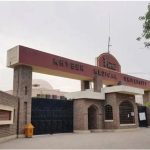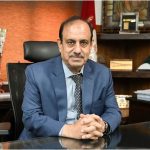A supersonic combustion jet engine, often referred to as a scramjet (short for “supersonic combustion ramjet”), is a type of air-breathing jet engine designed to operate at hypersonic flight speeds, typically above Mach 5 (five times the speed of sound).
Supersonic combustion jet engines are part of the broader class of air-breathing engines and are specifically optimized for high-speed flight.
For civil applications, they offer the advantage of high-speed travel, which could significantly reduce time for space access or long-distance terrestrial travel.
Ongoing research and development efforts by various countries such as the US, Russia, China, the UK, and India are focused on harnessing the capabilities of supersonic jet engines for hypersonic cruise missile applications.
Pakistan, like any other nation, also has the responsibility to ensure its national security and defense. Developing advanced military technologies, including hypersonic missiles, may be seen as a way to deter potential adversaries and protect national interests.
Developing supersonic combustion jet engines is challenging due to the extreme conditions they operate under.
One of the major technical challenges for the successful operation of this technology is sustaining combustion in the combustion chamber with inlet air flow entering in combustion chamber at supersonic speed.
With this challenge in mind and to make Pakistan step into hypersonic technology, Dr. Sohaib Khan embarked on a mission to advance propulsion technology in Pakistan. This motivation became the driving force behind his remarkable academic journey, culminating in pioneering Ph.D. research conducted in Islamabad last year.
Dr. Sohaib Khan’s doctoral research’s primary aim was to demonstrate sustained supersonic combustion at sea level and investigate supersonic combustion modes at various operating conditions.
To conduct this demonstration and experimental investigation Dr. Sohaib Khan along with his university supervisor and team, designed, locally developed & manufactured, and conducted hot static test fires of supersonic combustion jet engines in June 2022.
A total of six hot static test firings were performed, each with a duration of approximately 25 +/- 5 seconds. These tests served to reaffirm the validity of various design and technical parameters.







